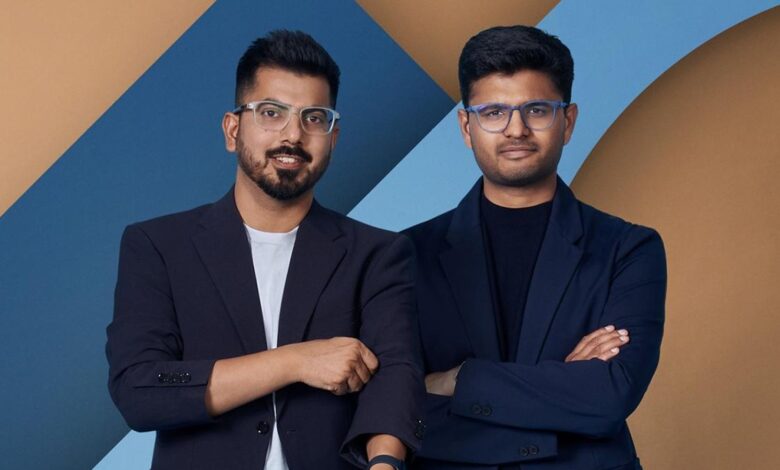Meet The Entrepreneurs Innovating In Sectors From EVs To Agritech

Forbes 30 Under 30 Asia
Entrepreneurs on the Industry, Manufacturing & Energy list are seizing opportunities in sectors including EVs and agritech.
As electric vehicles dominate energy transition conversations worldwide, young entrepreneurs on the Forbes 30 Under 30 Asia: Industry, Manufacturing & Energy list are identifying opportunities to contribute to the growing ecosystem and facilitate the adoption of eco-friendly transport in the region.
Akshit Bansal got the idea for greener transportation while biking to work through Bangalore’s diesel-fumed streets. After a car-sharing service he started with friend Raghav Arora failed to take off, the pair turned their attention to EVs.
Today their Gurgaon-based Sharify Services, operated under the brand Statiq, provides a nationwide network of charging stations for electric cars, buses, trucks and three-wheelers. “Demand is far outpacing supply,” says CEO Bansal in a video interview—India’s EV market revving up at an annual 26% growth rate, according to Hyderabad-based Mordor Intelligence. “We are very focused on scaling across all geographies and customer segments, both by putting up infrastructure and helping other partners to do that.”
forbes asia
Its charging stations, which users locate through Statiq’s app, can juice up an EV in as little as 15 minutes. The app also allows customers to prebook slots and control a charge remotely. “Our differentiator is that we focus on both the hardware and the software and we integrate them,” says Arora who heads Statiq’s IT department.
Statiq gets a small fee per charge, but the bulk of its income comes from bundled sales to operators that install and maintain the stations with Statiq’s software. It’s raised $27.5 million from investors so far and revenue is expected to reach 830 million rupees ($9.9 million) in the year ended March 2024. The company says it will post its first operating profit in the next financial year while doubling its current network to 16,000 chargers by the end of 2025.
Arora and Bansal aren’t the only ones catering to the growing EV sector. In Japan, Daichi Yoshioka and Keisuke Matsufuji confounded Yanekara in 2020 to develop and manufacture systems to simultaneously charge many EVs more efficiently and when electricity rates were the cheapest, the company says. One of Japan’s largest EV operators, Japan Post, has bought 100 units of that YaneCube charger, which is 15% more efficient. A system under development would enable solar inverters to double as chargers and help ensure grid stability using EV batteries as decentralized storage. Chiba Prefecture-based Yanekara has raised ¥228 million($1.5 million) in funding to date, including UTokyo Innovation Platform and Deepcore.
Rahil Gupta, cofounder of Hop Electric Mobility.
Supplied photo
In addition to charging stations, Under 3os are also innovating by creating their own EVs, as an alternative to gas-guzzling vehicles. India’s Rahil Gupta cofounded electric motorbike startup Hop Electric Mobility. Established in 2020, the company currently has three products selling from $800 to $1,600. The higher-end Oxo bike, for example, has a maximum speed of 95 kilometers per hour, and can travel 150 kilometers on a single charge. Hop Electric Mobility has raised $6 million to date, including $2.6 million in funding contributed in 2022 by an undisclosed publicly listed company in India.
Also in India, Dinesh Venkatasami, Karthikeyan Adhikesavan, Keerthivasan Ravi and Phunith Kumar V cofounded Raptee Energy in 2019. As the country embraces electric two-wheelers, they have developed a motorbike that can go 150 kilometers on one charge and reach a maximum speed of 135 kilometers per hour. Raptee Energy has raised $5 million in total funding, including $3 million in a pre-A round from investors led by Bluehill Capital in 2023.
Agritech on the rise
Agriculture is another sector that this year’s 30 Under 30 Asia listers are striving to modernize and disrupt.
In Japan, Ryoya Nishida cofounded in 2020 Towing with his brother to commercialize a synthetic soil system to grow crops. The technology enables development of seed-ready artificial soil in about a month versus the three to five years it normally takes. Compared to normal dirt, it uses less fertilizer and sequesters more carbon dioxide. One possible use for the product: growing things on the moon! The firm has raised ¥1 billion ($7 million) in funding to date, including from Beyond Next Ventures.
Ryoya Nishida, cofounder of Towing.
Supplied photo
With offices in Japan and India, Ankit Jain and Narayan Lal Gurjar cofounded agriculture startup EF Polymer. Established in 2018, the company has developed a polymer-based water-retention product that comes in the form of powder. Made from biodegradable materials such as banana and orange peels, it can help to retain moisture and boost crop yields by absorbing excessive moisture and then slowly releasing water into soil. EF Polymer has raised over $4 million in funding from investors including Beyond Next Ventures.
In India, college friends Abhi Gawri and Ankit Alok Bagaria cofounded agriculture tech startup Loopworm in 2019. The company turns insects into animal feed and has developed insect-based food for birds, fish and poultry.
Ashab Alkahfi Ananda Putra, Tubagus Syailendra and Ahmad Syaifulloh Imron, cofounders of Chickin.
Supplied photo
Meanwhile, Indonesia’s Ahmad Syaifulloh Imron, Ashab Alkahfi Ananda Putra and Tubagus Syailendra are working to help chicken farmers. Their Jarkata-based Chickin seeks to increase output through an IoT-based device called CI-Touch, which can monitor humidity and temperature and make adjustments.
–Additional reporting by Anurandha Raghunathan
Check out our complete 2024 30 Under 30 Asia: Industry, Manufacturing & Energy list here, and the full 2024 30 Under 30 Asia coverage, click here.



